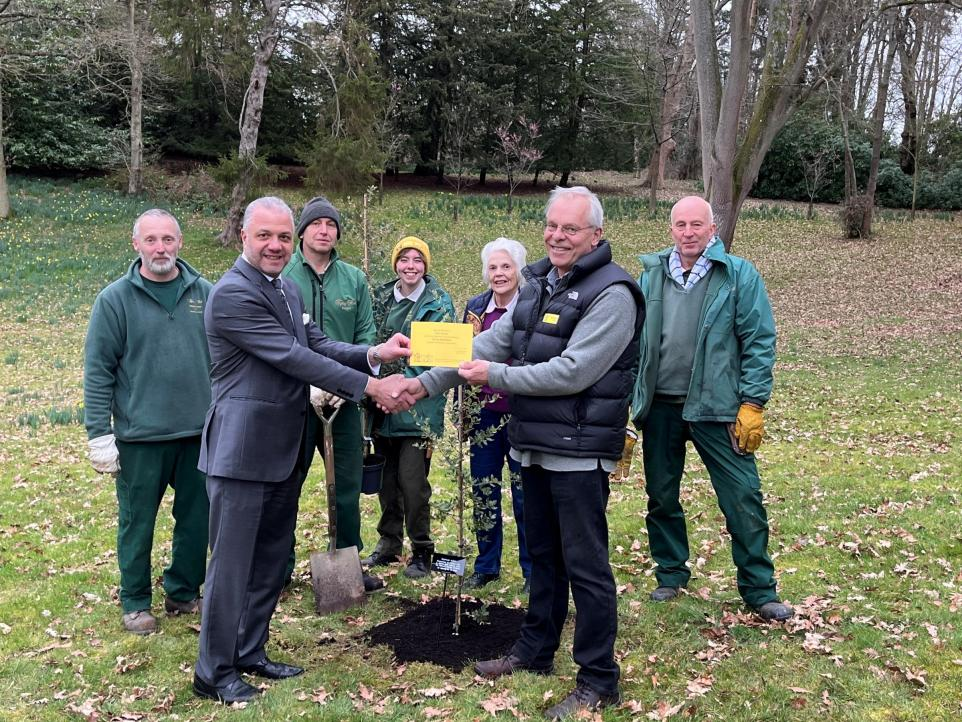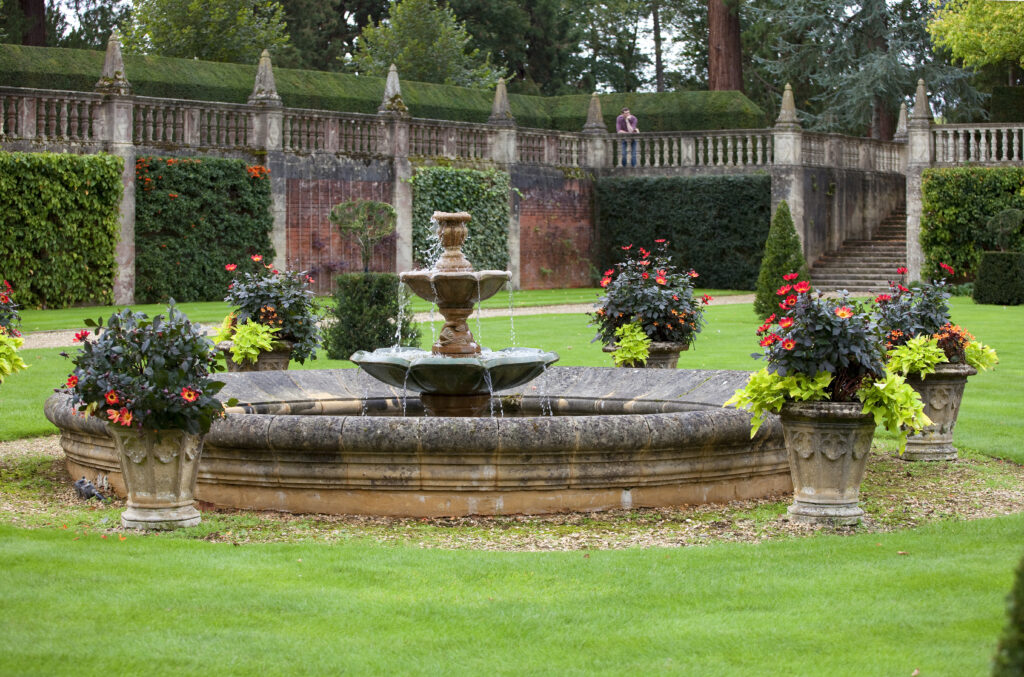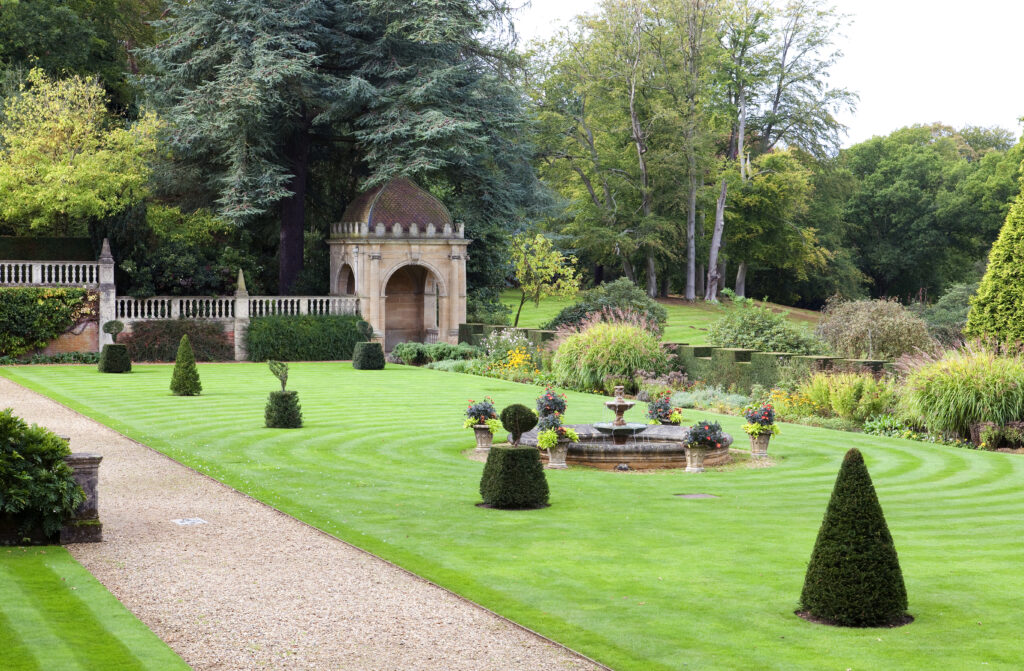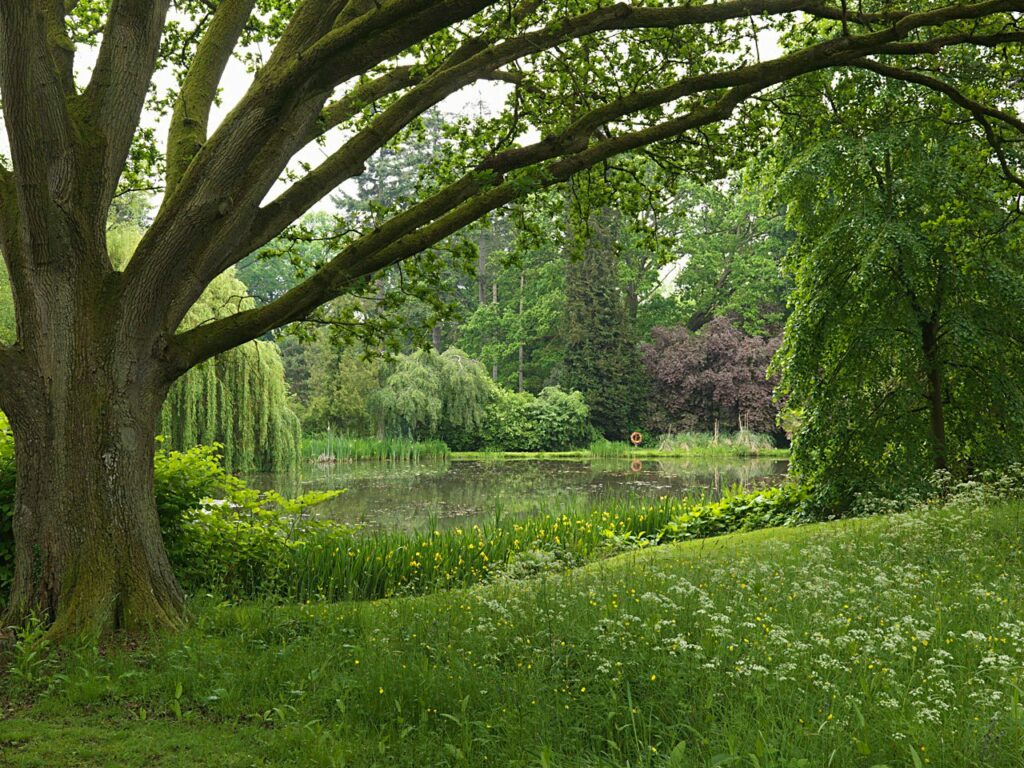Rare cork oaks planted in recognition of over 30 years support

Lead Image: Front left Sam Aziz, Tylney Hall General Manager with Mark Porter, Hampshire CO (l to r) Paul Tattersdill, Estates Manager, Keith Fisher, Deputy Head Gardener, Jess Moore, Apprentice Gardener, Cynthia Oldale, Hampshire ACO, Richard Davy, Estate Gardener. Credit: Louise Gerard, Hotel Administrator
Commemorative trees have been planted in a hotel garden to celebrate it opening its grounds for the National Garden Scheme for more than 30 years.
There are a number of hotels that open their grounds for the National Garden Scheme and Tylney Hall, a luxury hotel situated in 66 acres of parkland and gardens in Hook, Hampshire is among them. With grounds featuring an Italian garden, rose gardens, a boathouse lake, a tea house and vista, Dutch gardens, orchards, water gardens and more it’s the perfect place for an open day for garden lovers.
Louise Gerard, hotel administrator, said: “We currently open several times a year for the National Garden Scheme and were delighted to be presented with two cork oak trees in recognition of opening the gardens for charity for over 30 years.”
The garden team at Tylney Hall was presented with the trees by Mark Porter, Hampshire County Organiser, who said: “It’s always a pleasure to say thank you to the gardens that have been so loyal in their support of the National Garden Scheme and it seemed fitting to present these two rare cork oak trees to replace ones that recently succumbed to old age in the hotel grounds.”
More about Tylney Hall and gardens
A mansion has been on the site since 1561 with the first Tylney Hall built in 1700. The house that stands on the site today was built 1899-1900. However, parts of the garden date from a much earlier period. The boat house lake and the top lake of the water garden were both present in the 18th century and some of the mature trees were planted during the first half of the 19th century – in particular some of the avenues and trees around the perimeter of the park.
Most of the garden which survives today dates from about 1900. Seldon Wornum, the architect responsible for the re-modelling of the house in 1900, laid out the Italian terrace and the Dutch garden. The designer Robert Weir Schultz, a follower of the Arts and Crafts movement, further embellished the gardens between 1901-1905. He added a range of garden buildings including a boathouse, summerhouse, greenhouses, water tower and orangery. In 1906 he asked Gertrude Jekyll to produce designs for a wild water garden. She prepared planting plans and suggestions for the whole area south of the kitchen garden, flower borders along the south wall and in front of the Orangery, plant lists for the wild garden and plans for planting along the main watercourse. In 1940 the water garden was redesigned by Woods of Taplow and a second watercourse was created which divided into two spurs and ran along the edge of the woodland. Later additions include an azalea garden, which lies behind the circular rose garden. Most of the garden that survives today dates from about 1900.
The estate has a long and interesting history and even served as a hospital during the First World War. During the Second World War it became the headquarters for the shipping line, the Clan Line Steamers before becoming a school in 1948. Tylney Hall opened as a hotel and restaurant in 1985.
Tylney Hall’s open garden events in 2023 will be on Sunday, April 16, Sunday, May 14 and Sunday, June 11. For more information click here.





















